Shinjuku Bento surprises us with historic ingredient from the samurai era
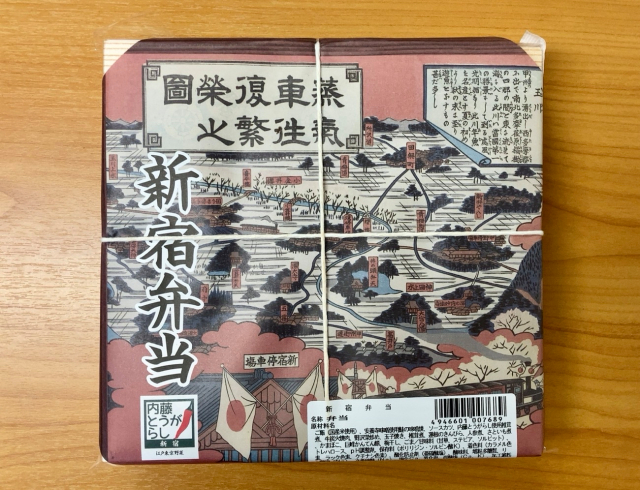
Unusual ekiben takes us back in time with a hot ingredient.
One of the things we love about train travel in Japan is the opportunity to purchase pre-prepared bento lunchboxes known as “ekiben” to enjoy during the journey. These lunchboxes don’t have to be eaten on board trains, however, as ekiben are commonly sold at stores inside the station, meaning anyone who passes through can buy them to savour a taste of rail travel back home or at the office.
Recently, we were passing through Tokyo’s Shinjuku Station when we came across a very unusual bento that caught our eye. Like most ekiben, this one, called “Shinjuku Bento“, is a celebration of locally sourced ingredients and regional specialties, but we couldn’t help wondering: What would those specialties be?
Shinjuku is a massive concrete jungle with little, if any, farming going on within it, so we took a closer look at the packaging to find out more about its contents.
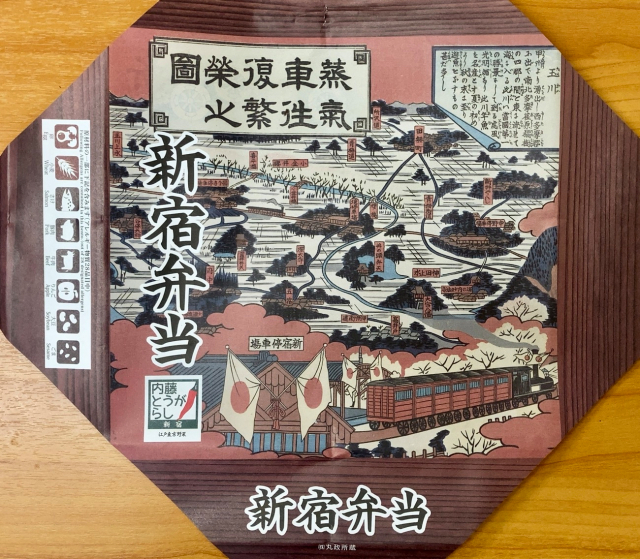
The gorgeous retro design on the package harks back to the early days of rail travel, with an image showing a steam locomotive setting out on the route from Tachikawa to Shinjuku along the Chuo Line when it first opened.
▼ That same route, as it looks today.
During the Edo Period, before the route was established, Shinjuku was a farming area famous for togarashi (chilli peppers) known as “Naito Togarashi“. These chillies got their name from the fact that they were grown on land owned by the Naito samurai clan, and while they were synonymous with the area for many years, they eventually disappeared with the farms as Shinjuku grew to become a post town, before becoming the concrete jungle we know it as today.
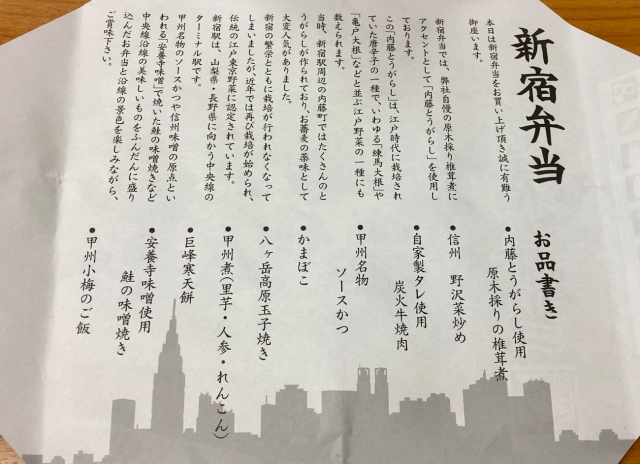
The history of the Naito chilli, and its connection with Shinjuku, is laid out on the back of the paper packaging, along with an image of the Shinjuku skyline and a list of the bento’s ingredients. Thankfully, a special project to bring the Naito Togarashi back to the attention of the public as a local Tokyo specialty began in 2010, and this bento helps to further promote it, listing the special chilli as its very first ingredient.
▼ Time to lift off the lid…
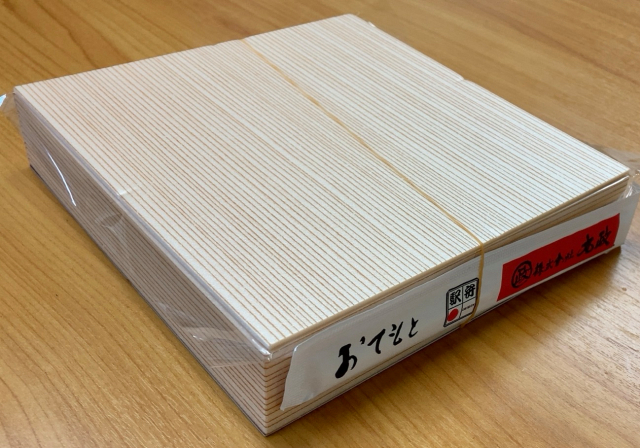
▼ …And feast our eyes on the Shinjuku Bento!
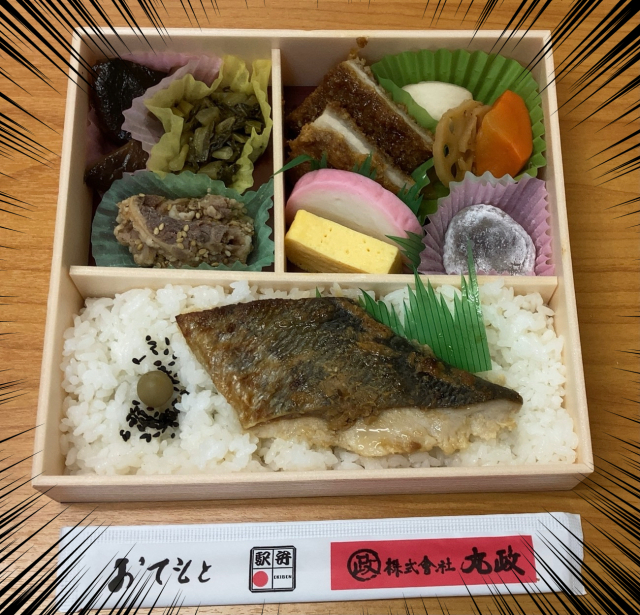
This was clearly a gorgeous ekiben, filled with top-quality ingredients designed to take your taste buds on a journey that mimics the actual train route.
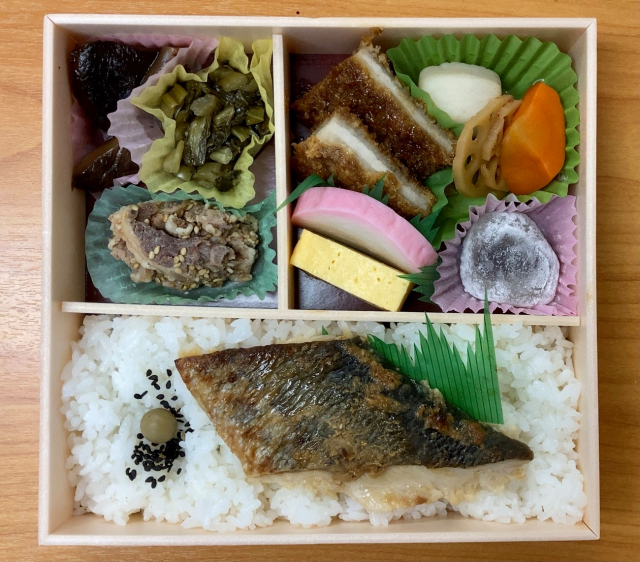
These “all-star selections” contain famous ingredients from areas along the Chuo Line and further along the route as it heads out to the Shinshu (modern-day Nagano) and Koshu (modern-day Yamanashi) regions.
▼ Starting with the rice section, we have a piece of fish, grilled with Anyoji miso, a famous type of miso from Shinshu.
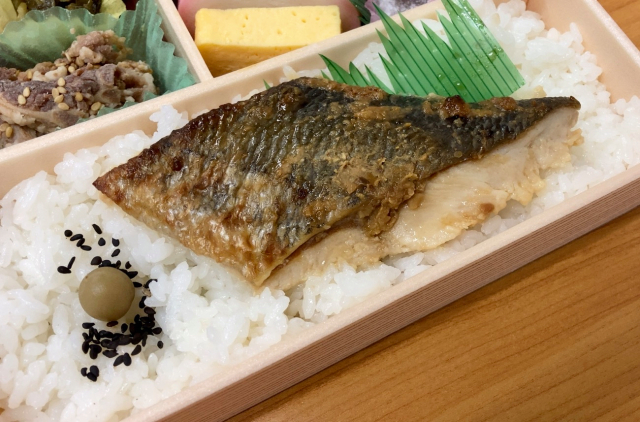
The miso-grilled fish goes well with another Shinshu specialty, stir-fried nozawana (a Japanese leaf vegetable)…
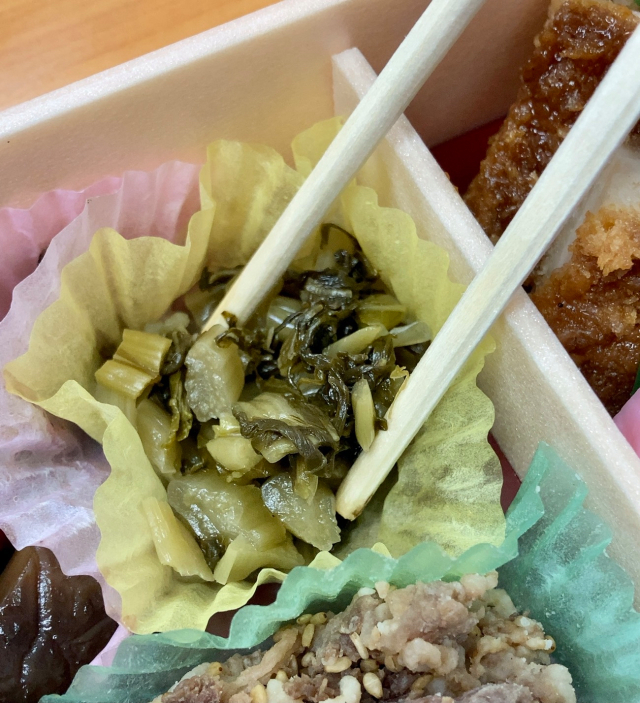
▼…And Yatsugatake Kogen Tamagoyaki (rolled egg omelette), which also hails from Shinshu.
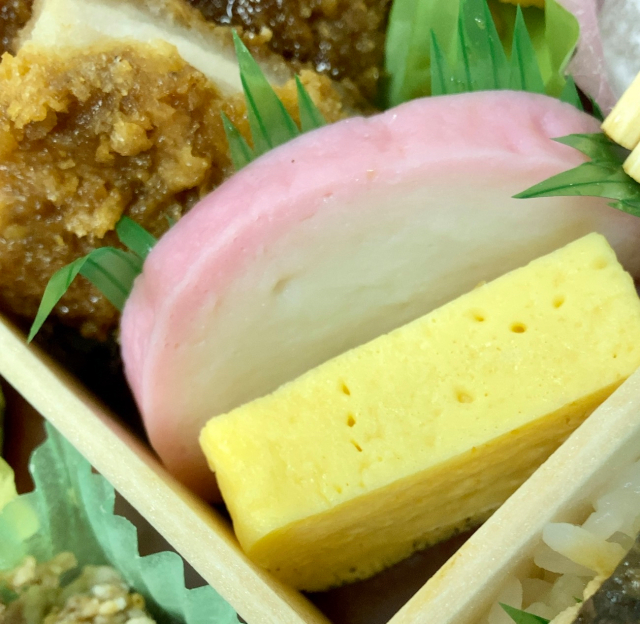
▼ The beef yakiniku is glazed with an apple sauce sourced from — yep, you guessed it — Shinshu.
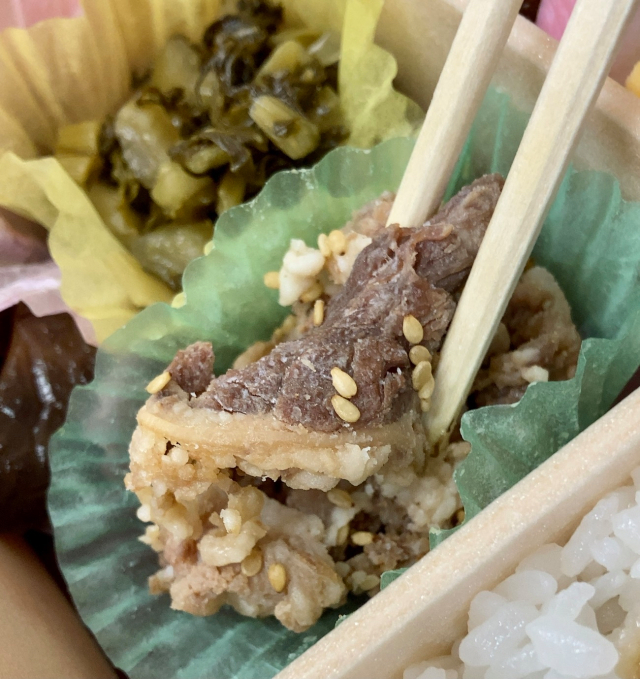
▼ The “sauce katsu”, a saucy fried pork cutlet, flies the flag for Yamanashi Prefecture.
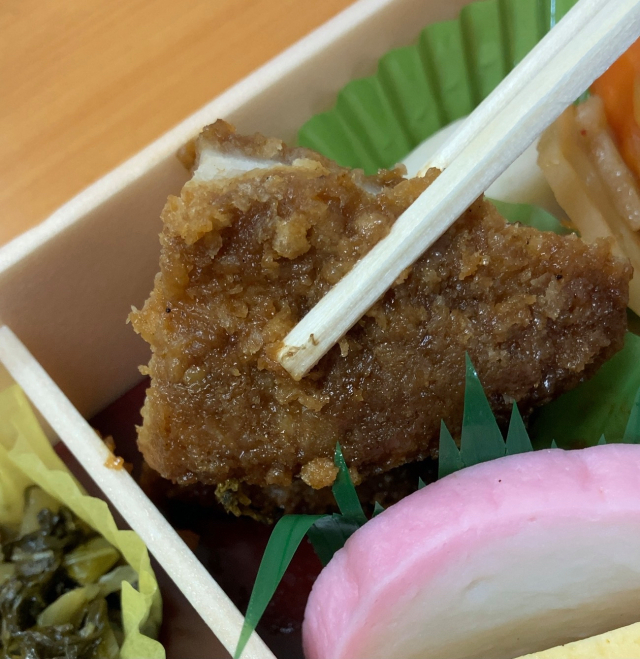
Just as we were wondering where the Shinjuku portion of the Shinjuku Bento was hiding, we found a flash of red in the shiitake mushrooms, which had been simmered with Naito togarashi.
▼ A taste of the samurai period!
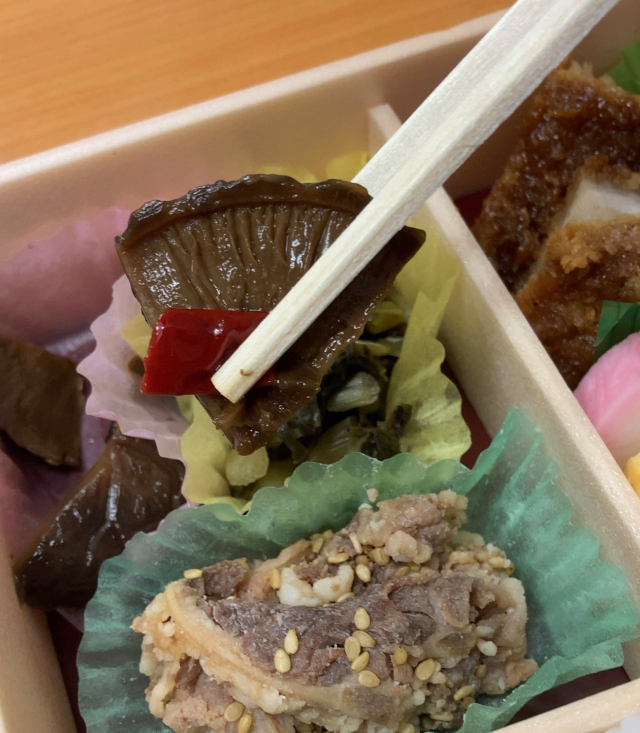
We were keen to try this chilli dish, and were pleasantly surprised to find it had a mild heat that came only after it had been eaten, allowing us to enjoy its flavour. It was spicy and aromatic, and went incredibly well with the mushrooms.
▼ Lastly, for dessert, a mochi cake containing a purple kyoho grape from Shinshu.
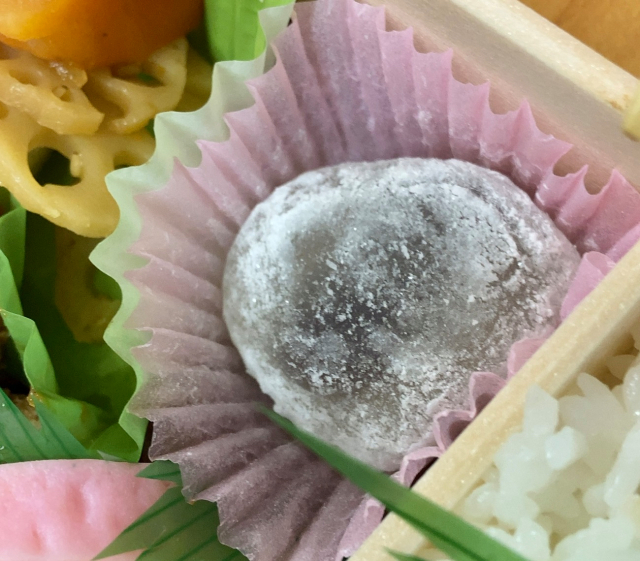
Everything inside this bento was absolutely delicious, and though we were sitting at our desk in the office, we felt as if our taste buds really had gone on a trip from Shinjuku to Nagano and Yamanashi and back again.
It’s certainly whet our appetite for travel, and opened our eyes to an interesting side of Shinjuku we never knew about. Not a bad deal for 1,200 yen (US$10.99), and a great excuse to explore the world’s busiest train station, which can be as confusing as a video game dungeon.
Store information
Ekibenya / 駅弁屋 頂
Address: Tokyo-to, Shinjuku-ku, Shinjuku 3-38-1, JR Shinjuku Station south exit concourse
東京都新宿区新宿3-38-1 JR新宿駅内南口コンコース
Hours: 6:30 a.m.-10:00 p.m.
Photos ©SoraNews24
● Want to hear about SoraNews24’s latest articles as soon as they’re published? Follow us on Facebook and Twitter!
Credit:

0 comments:
Post a Comment